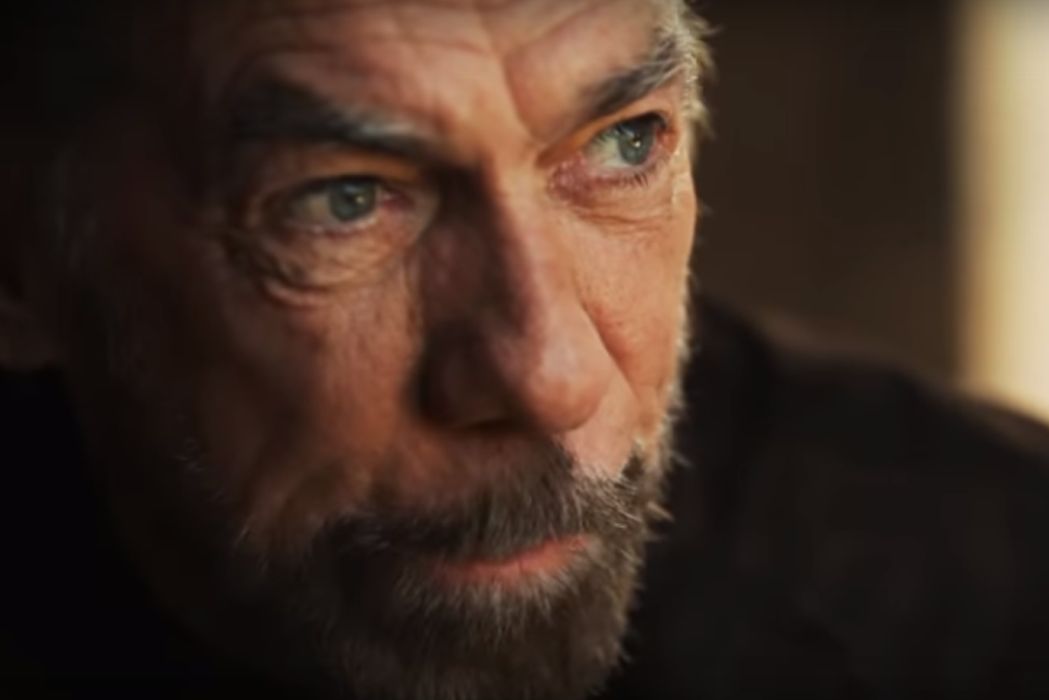GOOD FORTUNE: One-Sided Yet Heart-Warming

With an honourable personal ethos of providing his workers with a fair wage and his direct investment into renewable energy, John Paul DeJoria must be applauded for his philanthropic efforts and company values. Co-founder of Paul Mitchell Haircare and Patrón Tequila, Good Fortune unveils the man behind the $3.1 billion curtain.
Documentary vs. Marketing the DeJoria Brand
Whilst the achievements of DeJoria are remarkable, the narrative of the documentary is selective – almost acting as an hour and a half marketing video of himself and his associated brands. It provides a colorful synopsis of his life, all wrapped up in a neat auditory bow in the form of narrator, Dan Akroyd.
Even when he is talking about DeJoria’s lamentable early days, it never comes across as overemotional, there is seemingly always signs of improvement on the horizon. It can certainly be said that ‘JP’ as he is affectionately known, has lead a life of undulating prosperity; homeless on two occasions, recruited into a motorbike gang, a series of failed marriages and a catologue of unsuccessful business ventures. Despite his subsequent success, DeJoria doesn’t come across as arrogant at any point.

The film begins with a live segment from network television show, Shark Tank – DeJoria is one of the investors on the panel. When a farmer comes forward with a water efficient irrigation system with a low price point, the other members of the panel are deterred from investing. Shocked by his colleagues, JP instantly becomes a business partner by injecting the company with the required $150k – showcasing his passion for the environment and benevolence towards others.
After traversing his troubled childhood and problematic career choices, the story then shines a spotlight on his partnership with Paul Mitchell and the product launch of lucrative tequila brand, Patrón. The documentary also examines a few of DeJoria’s passion projects like Peace Love Happiness Foundation, a charity that deals with an assortment of causes: aiding veterans, protecting animals and the environment and the homeless. The organisation holds an annual charity motorbike ride to raise funds and in turn, fuel JP’s love of the open road.
Too Good to Be True?
A large portion of the documentary focuses on the more charitable efforts in his life; his work with Sea Shepherd, who attempt to stop whale poaching of the Japanese coast and Chrysalis, a Los Angeles based non-profit organisation that aims to provide those without a home with the tools and skills to gain employment. He has also signed the ‘Giving Pledge’ in 2011, a promise in his will that more than 50% of his wealth will be bequeathed to an amalgam of charitable organisations, along with the likes of Bill Gates and Warren Buffet.

The problem with biographical documentaries is that they sometimes must be taken with a pinch of salt. The main narrative of the story is Dejoria’s transcendence from homeless man living in his car to self made billionaire. Whilst, this strain of storytelling showcases the businessman for the potently virtuous man he is, it doesn’t give the watcher necessarily the entire perspective. Naturally, this is to be expected when the film was commissioned by JP himself – he admitted in a Q&A session that he would never have authorized a film on his life but was won over by the directors, Rebecca and Joshua Tickell.
Behind the Scenes
Whilst this element of documentaries isn’t as popular as the traditional ‘biopic’, a ‘behind the scenes’ glance into an elite person’s life is becoming a more established trend. According to a 2017 study by 7 Park Data, compared to the previous year, while reality TV viewership had increased by 10.3%, on media platforms Hulu and Netflix, figures had increased by a massive 28.3%. It was the largest growth seen in any respective genre available on demand, so much so that it has served to dictate some of the programming for the coming year. At a conference last December, Netflix’s Chief Content Officer, Ted Sarandos acknowledged this very line of thought saying that they were “more likely to travel internationally.”

However, Good Fortune does possess traditional features like interviews with DeJoria’s friends and colleagues, a diverse range of business people, actors, musicians and family members. Prolific figures in the media like Ariana Huffington, founder of the Huffington Post and Robert F Kennedy Jr, an American radio show host, environmental activist, lawyer and author – offer their thoughts and feelings on the businessman during the course of the film. He also recruited some of his acting acquaintances to exchange their musings on his company ethos or a cameo at one of his philanthropic events; Cheech Marin, Danny Trejo and Giancarlo Esposito all receive screen time to some extent.
In Conclusion
Whilst the portrayal of John Paul DeJoria is arguably one sided, Good Fortune is a heart-warming rags to riches story, overcoming both social and economical adversity. Not forgetting his commitment to better the lives of those people less fortunate – if it serves to inspire audience members to the same, it would be a worthwhile endeavor.
What do you think of the ‘conscious capitalism’ policy? Should more businesses be embracing values like JP?
Good Fortune got limited release on June 23, and comes to digital platforms on August 1.
Does content like this matter to you?
Become a Member and support film journalism. Unlock access to all of Film Inquiry`s great articles. Join a community of like-minded readers who are passionate about cinema - get access to our private members Network, give back to independent filmmakers, and more.













